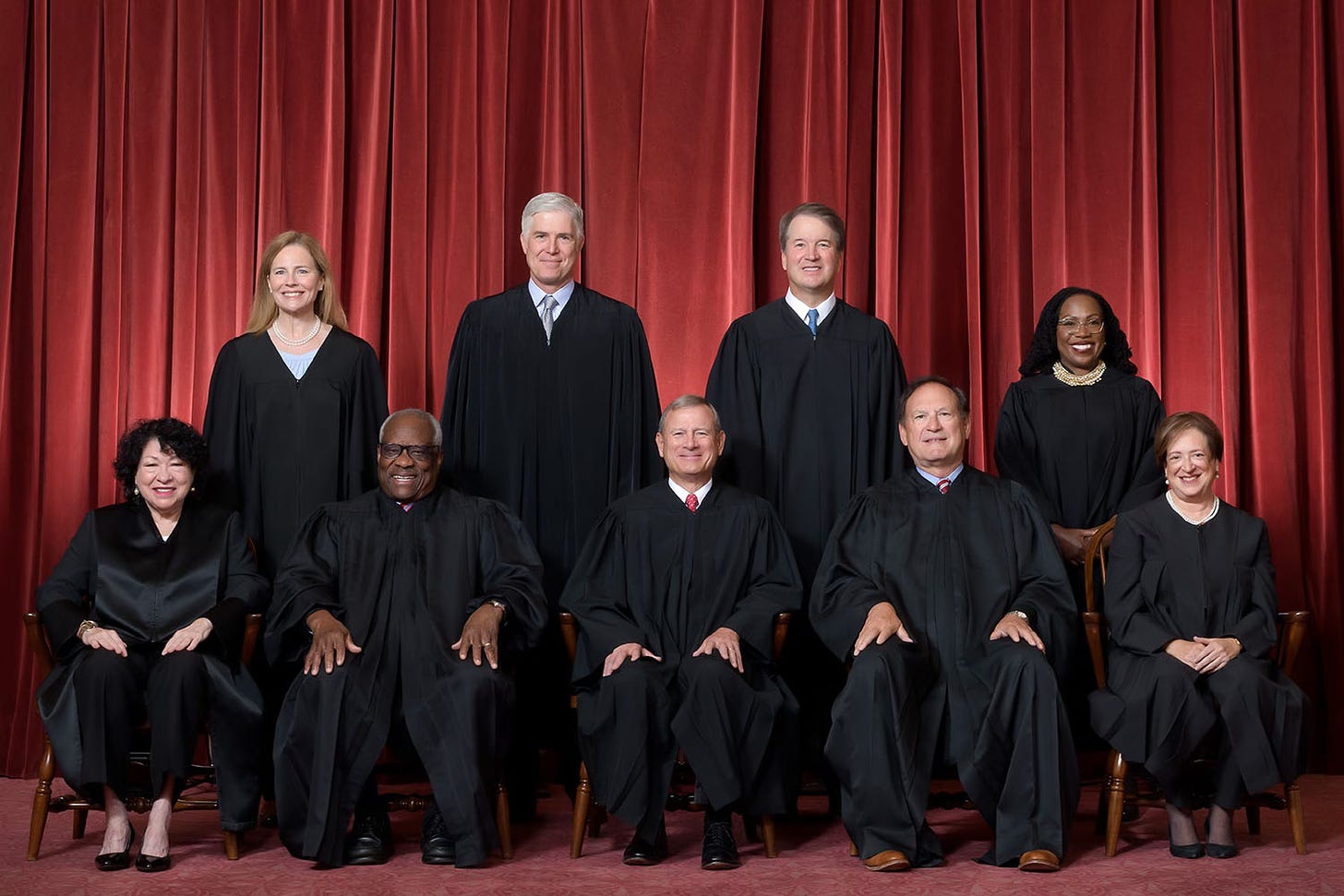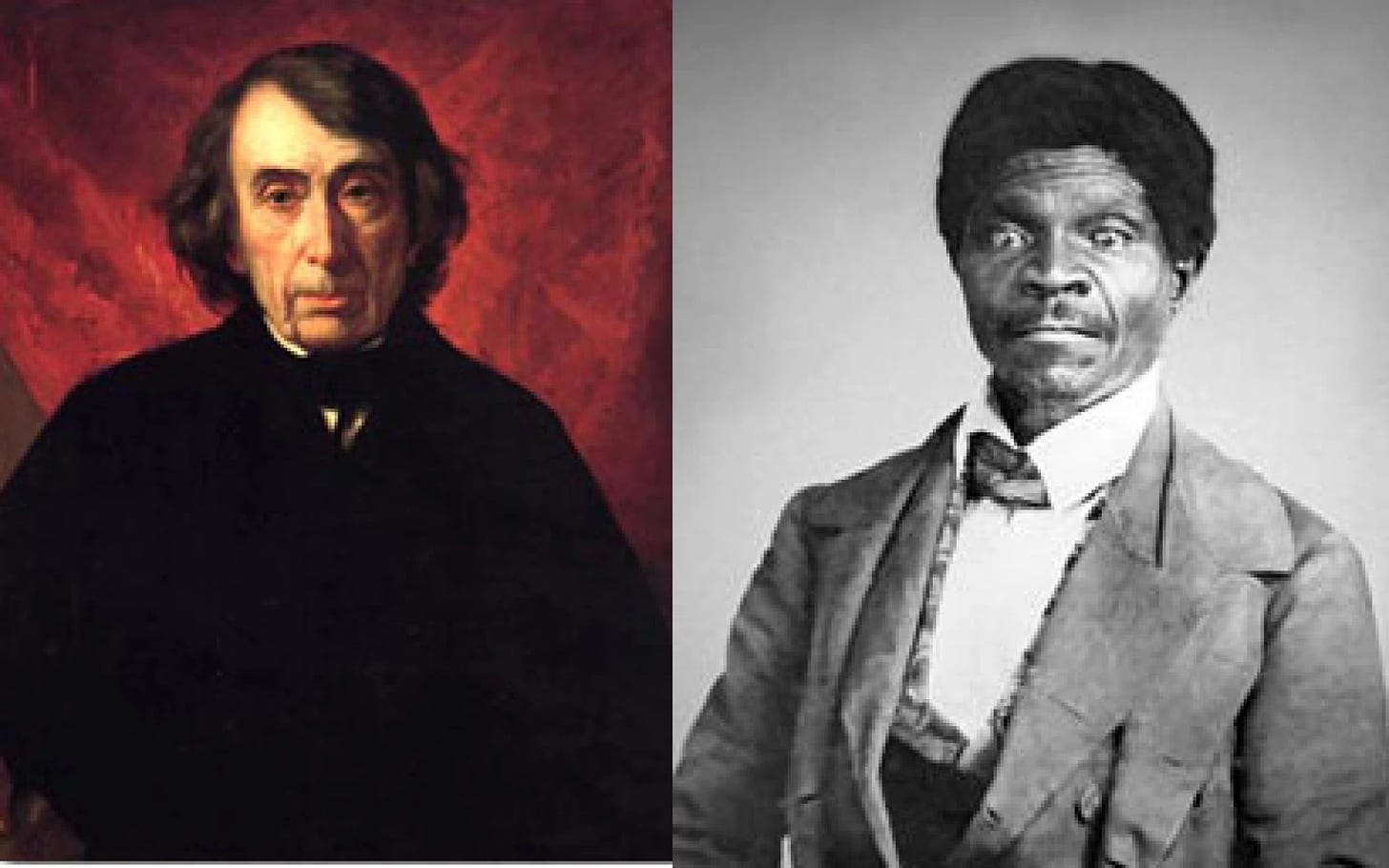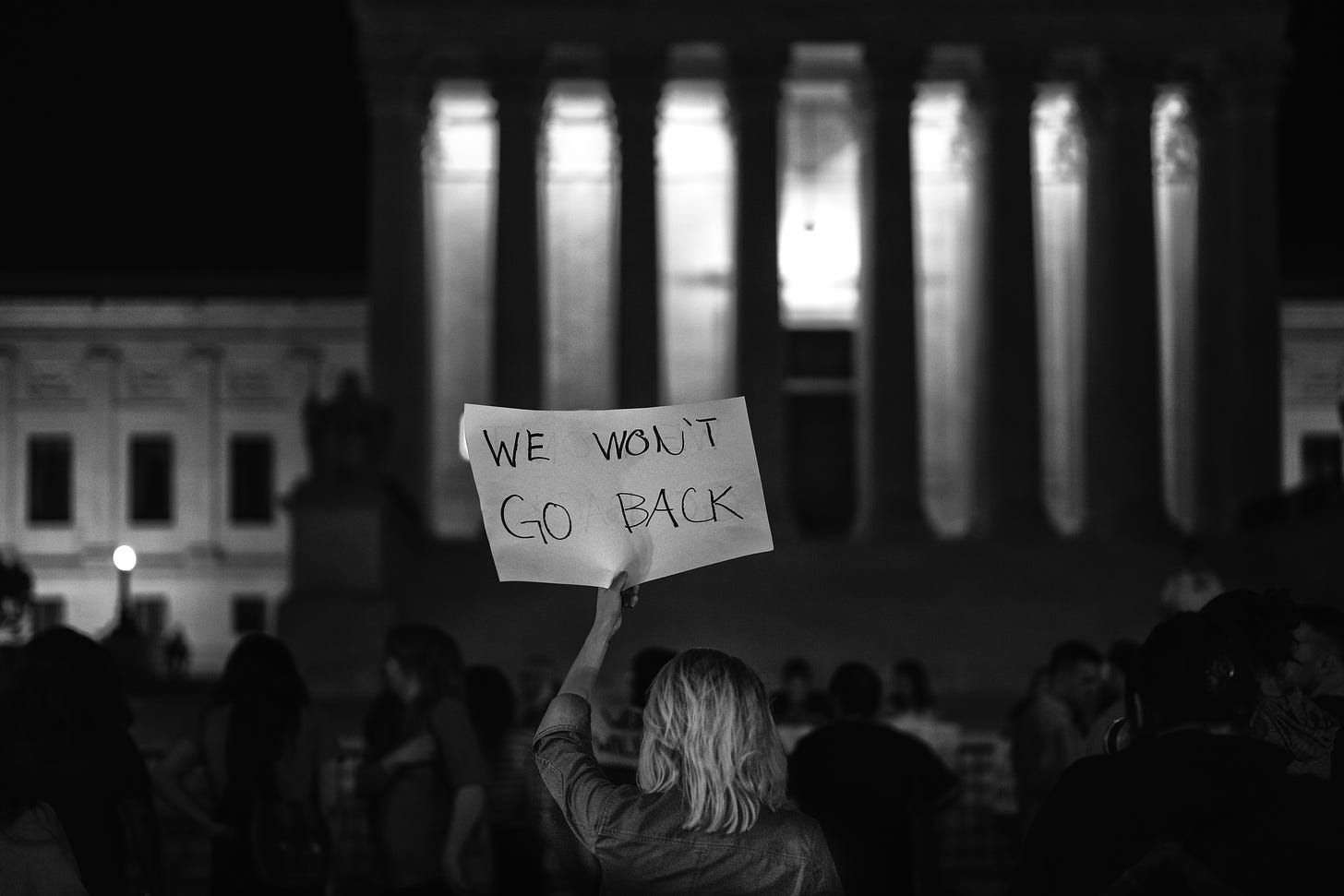The Supreme Court and the Origin of Corrupted Morals

To the chagrin of the American public, originalism – which seeks to adhere to the purported “original intent” of the Constitution’s drafters – has become the U.S. Supreme Court’s dominant judicial philosophy in interpreting the U.S. Constitution. As the Court majority employs originalism, resulting in a succession of unpopular decisions with catastrophic ramifications (while also embroiled in ethics controversies), I believe that an often overlooked section of the work of German philosopher Friedrich Nietzsche can help explain our present chaos.
In section 32 of Nietzsche’s book, Beyond Good and Evil, he lays out his theory on the evolution of morality. First, he claims that in the “prehistorical times” morality derived from the consequences of one’s actions. For example, if you punched someone in the face, you can learn about the immorality of that action because of the harm it inflicted upon the other person, but no concept of morality was influencing the decision to punch or to not punch the person. Nietzsche describes this age as pre-moral.
Second, he argues that, over the last 10,000 years, societies have progressively evolved and adopted another concept of morality that derives from an origin, “where it is no longer the consequences but the origin of an action that one allows to decide its value.” Nietzsche further highlights how this evolution is a complete inversion of morality because it derives from the origin and not the consequences. Additionally, this new concept of morality is also an after-effect of “aristocratic values and the faith in ‘descent.’” If morality derives from an origin such as a monarch then one must also believe that morality can descend downwards to the masses.
In this new concept of morality, people exist as descendants and derivatives of morality and, as a result, they will be judged by their intentions and not the consequences of their actions. The person is attempting to be a derivative of morality, but since they are not the embodiment of morality, they will fail, and their actions will have dire consequences. But, according to a morality of origin, they should be judged by their intention, and not the consequences.
To illuminate this notion further, let’s continue with the analogy of punching someone in the face. Under a morality of origin, the consequences of punching someone in the face would have no bearing on the morality of the assault. Punching someone in the face would be either moral or immoral, if whatever the person considers to be the origin of their morality says the action is or is not moral. If our society agrees that it is morally good to punch another person in the face, then we would conclude that the puncher is a good person. If the person punched believes the other person is bad, we would be inclined to teach that person that the puncher is “good” because the intent was moral, so the harm caused by the punch is irrelevant.
Similarly, if someone believes that morality resides in a divine book or documents, and that these texts denounce homosexuality, they would be encouraged to conclude that violence upon homosexuals would be a moral act regardless of the consequences.
The conservative legal doctrine of originalism is an American iteration of the morality of origin where the United States’ goodness and morality derive from our founding fathers and founding documents. Therefore, we should not be surprised when originalist justices make decisions with catastrophic outcomes that they claim to be morally good.
At this point, I think it should be abundantly clear how disastrous a morality of origin can be upon the world. This is also why Nietzsche states that the morality of origin needs to be overcome. Due to a morality of origin defining the modern era and our concept of morality, Nietzsche describes this time period as the moral era and proclaims the need to create an extra-moral era: a new concept of morality that takes us beyond a morality of origin.
I believe that Reconstruction from 1865-1877 attempted to overcome America’s morality of origin and create an extra-moral society in the United States. During Reconstruction, the United States began the process of creating a morality that consisted of recognizing the humanity of Black Americans, or the “other,” and the tensions of this era centered around the clash between the new extra-moral America and the morality of origin, or moral, America that allowed slavery and deified our founding fathers.
For example, in the infamous decision in Dred Scott v. Sandford, Supreme Court Chief Justice Roger Taney concluded that the U.S. Constitution did not extend American citizenship to Black Americans. Therefore Dred Scott, a Black man, could not sue for his freedom because only American citizens had the right to bring lawsuits before the Court. This decision is widely considered among the worst in the Supreme Court’s history, but it is important to acknowledge why it is such a bad decision and why Taney believed it to be a good decision at the time.
In his opinion for the Court, Taney framed his reasoning around what he believed the framers of the Constitution’s intent to be. The evolving morals of the time, Scott’s humanity, and even Congress’s passage of the Missouri Compromise became irrelevant and subsequently unconstitutional according to Taney because, according to his interpretation of the framers’ intent, Black people were “altogether unfit to associate with the white race, either in social or political relations, and so far inferior that they had no rights which the white man was bound to respect.”
Taney’s logic for this immoral decision was a belief in the morality of origin, in which America’s morality originates from its founding fathers and their racist beliefs.
In response to the immorality of the moral era, America began the process of creating an extra-moral status quo that culminated in Reconstruction, and the quest for an extra-moral America has been the driving force for American civil rights and racial equality ever since.
Therefore, it should not be surprising that the opponents of Reconstruction, civil rights, voting rights, and racial equality in America often counter this American progress by professing an American iteration of the regressive morality of origin, of which originalism is the modern manifestation.
For example, in the majority opinion written by Supreme Court Justice Samuel Alito in 2022 in Dobbs v. Jackson Women’s Health Organization that overturned Roe v. Wade and the constitutional right to abortion, Alito used a morality of origin framework to overturn nearly 50 years of legal precedent.
In his opinion, Alito states that “Until the latter part of the 20th century, such a right [to abortion] was entirely unknown in American law. Indeed, when the Fourteenth Amendment was adopted, three quarters of the States made abortion a crime at all stages of pregnancy…. It is time to heed the Constitution and return the issue of abortion to the people’s elected representatives.”
Alito’s decision was not based on the realities of the present or the needs of women, but on a concept of morality that originates from the founding of America. Since America’s founders did not express an intent to protect abortion at a federal level, he has concluded that it is immoral to ever provide women with a federal right to abortion. His regressive understanding of morality derives from intent, both his own and our founders’ purported intent, and the dire consequences of his actions remain irrelevant to himself and other originalists.
Not only is a morality of origin regressive, but it also breeds immorality, corruption, and a thirst for power because “morality” is no longer related to consequences and is instead determined by one’s purported proximity to the origin of morality. Originalist judges claim that they are capable of deciphering our founders’ intent and therefore the ‘true’ meaning of our laws, and their professed proximity to American morality means that their actions and decisions will always be moral so long as their intent is an extension of what they claim to be the intent of America’s founders.
Their claimed proximity to the origin of American morality means that any action they undertake, regardless of how blatantly corrupt it may be, will be deemed moral if they proclaim it to be so. Also, having an entity regulate the ethics and conduct of the Supreme Court would be considered absurd because the originalist justices exist as a conduit through which the origin of American morality is supposed to flow. Therefore, these moral individuals should be able to self-regulate.
Essentially, originalists and the majority of the Supreme Court now have the power to arbitrarily decide what is and is not moral, and the consequences of their actions or the will of the people have no influence on what is or is not moral. Within this moral era, morality has been reduced to a delusion and the United States, and all other moral societies, will struggle to differentiate between right and wrong.
The judicial chaos of the present is rooted in a multi-millennium-spanning concept of morality that creates corruption, chaos, and immorality. Reconstruction started America’s extra-moral growth, and I believe that Reconstructionism can help us overcome and transcend this era of corrupted morals.




